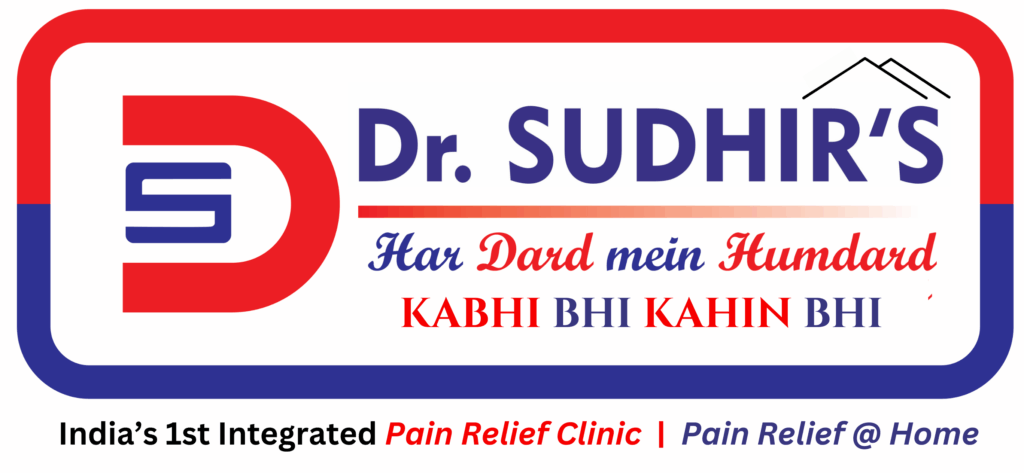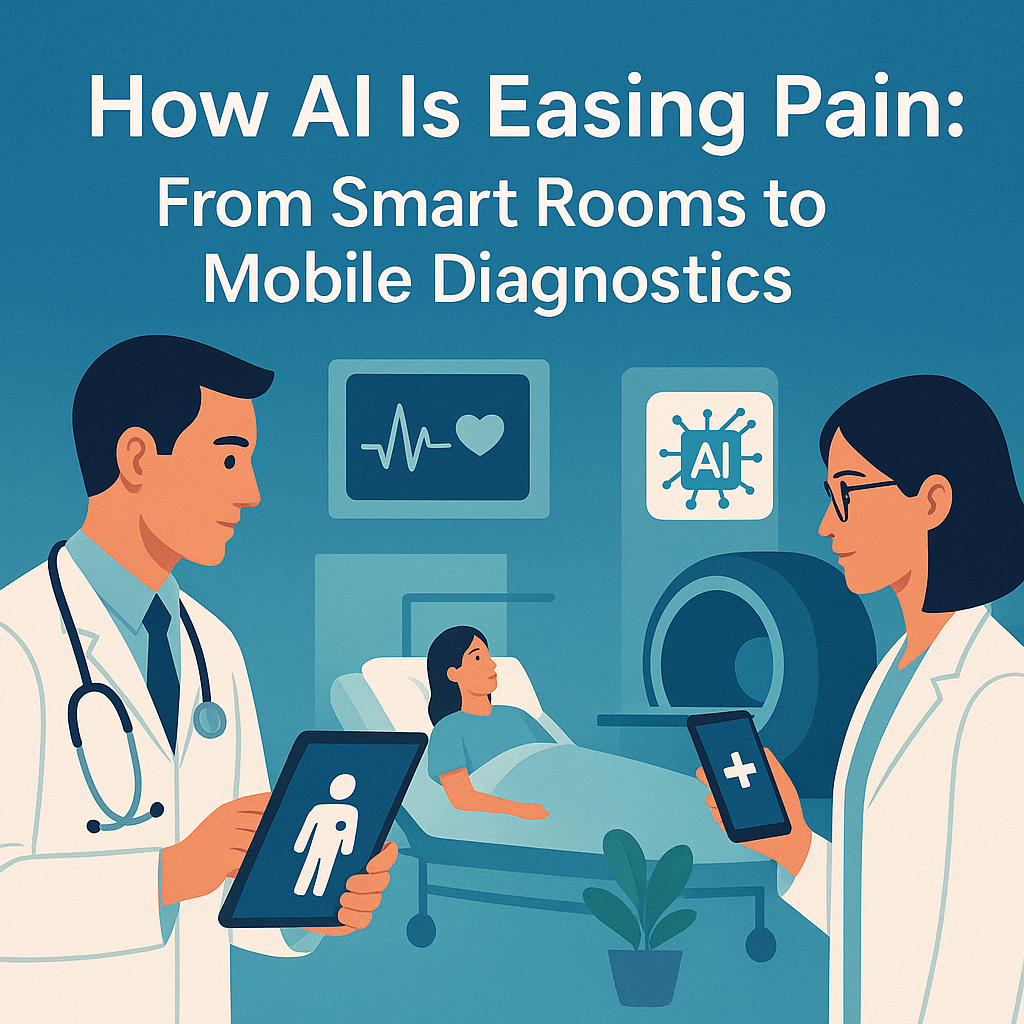Artificial Intelligence (AI) is changing many aspects of our lives, and healthcare is one of the areas seeing the most rapid transformation. From the way hospitals monitor patients to how doctors make faster and more accurate diagnoses, AI is no longer just a futuristic idea—it is already part of modern medical practice.
For patients, this shift can feel both exciting and overwhelming. On one hand, AI promises faster results, safer care, and new ways of managing pain and recovery. On the other hand, it also raises important questions about trust, reliability, and the role of human doctors. In this article, we will explore how AI is being used in healthcare today, what it could mean for you, and why expert guidance remains essential.
How AI Is Being Used in Healthcare
AI Scribes: More Time With Your Doctor
One of the simplest but most effective uses of AI is in medical documentation. Traditionally, doctors spend a significant part of the consultation typing notes or filling in records. AI-powered medical scribes now handle this task automatically by listening to the conversation and creating accurate summaries. For patients, this means the doctor can focus on listening, asking the right questions, and making sure no detail is missed.
Smart Patient Rooms: Safety Without Disruption
Hospitals are beginning to integrate AI systems into patient rooms. These systems use sensors and listening devices to track important signals such as movement or unusual sounds. For example, if a patient tries to get out of bed at night and risks falling, the system can alert staff immediately. Patients may not even notice this technology at work, but it creates a safer and more responsive environment.
Smarter Medical Scans: Faster and More Accurate Answers
Time is critical in medical emergencies such as strokes or fractures. AI tools are now capable of reading brain scans, X-rays, and other imaging results with very high accuracy, sometimes even detecting details that a human might miss. For people in severe pain or at risk of complications, this means quicker diagnoses and faster treatment plans, reducing suffering and improving outcomes.
Mental Health Support: Care Between Appointments
AI is also being applied in mental health, where access to timely support is often limited. AI-based therapy platforms and chat assistants are available around the clock to help with stress, anxiety, or depression. They provide guidance, coping strategies, and a sense of connection when human professionals are not available. While they cannot replace a trained counselor, they can be a valuable support between sessions or in situations where access to care is limited.
Mobile Imaging: Bringing Diagnostics to the Patient
One of the most practical uses of AI is in portable imaging systems. In some countries, AI-enhanced mobile CT scanners are already being used in intensive care units and rural areas. Instead of waiting for patients to travel to specialized centers, the machines come to them. This makes advanced diagnostic technology available even in places where healthcare facilities are limited.
What This Means for Patients
The rise of AI in healthcare is not just a technical change—it has real benefits for everyday people. Patients can expect:
-
Shorter waiting times for results and treatment plans.
-
More personal attention from doctors, as administrative work is reduced.
-
Safer hospital stays with fewer overlooked risks.
-
Access to diagnostic tools that were once limited to big hospitals or cities.
-
Additional support for managing mental and physical health at home.
Useful AI Tools You Can Explore
While hospitals and clinics are adopting large-scale AI systems, there are also tools that individuals can use directly:
-
Ada Health – A symptom checker app that helps patients understand possible causes of their health issues.
-
Woebot – An AI-based mental health companion that provides cognitive behavioral therapy techniques in a conversational format.
-
SkinVision – A mobile app that helps analyze skin spots and moles for signs of skin cancer.
-
Fitness and Health Trackers – Devices like Fitbit and Apple Watch use AI to provide insights into sleep, activity, and heart health.
These tools can empower patients to better understand and manage their health.
A Word of Caution
Despite these exciting advances, it is important to remember that AI is not perfect. It can make mistakes, especially in complex or serious medical situations. For example:
-
An AI system may misinterpret symptoms or data.
-
It may miss subtle warning signs that an experienced doctor would notice.
-
It cannot replace empathy, human judgment, or a doctor’s ability to consider unique patient circumstances.
This is why AI should be seen as a helpful tool, not a replacement for professional medical care. Relying on AI alone for serious conditions could be dangerous.
The Right Balance: AI and Human Expertise
The best approach is not to choose between AI and doctors, but to use both together. AI can handle the heavy lifting of data analysis, monitoring, and documentation. Doctors can focus on what machines cannot do—listening, understanding, comforting, and applying years of medical judgment to individual cases.
At Dr. Sudhir’s Pain Relief Clinic, we believe the future of healthcare lies in this partnership. Technology can improve speed and accuracy, but human expertise ensures care is compassionate, ethical, and tailored to each person.
Final Thoughts
Artificial Intelligence is making healthcare smarter, safer, and more accessible. Patients today benefit from faster diagnoses, safer hospital environments, and even at-home tools that provide insights into their health. However, AI should never be followed blindly. For serious conditions or ongoing pain, professional guidance remains essential.
If you are exploring new ways to manage your health or pain, AI tools can be a valuable addition to your journey. But when it comes to important decisions about your body and well-being, trust the experience and care of medical professionals.
At Dr. Sudhir’s Pain Relief Clinic, we combine the best of both worlds: advanced technology where it helps most, and compassionate human care where it matters most.
To our specialists at 03369028275.







